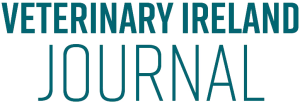Reflective practice in veterinary medical and nursing education – what does the literature tell us?
In association with

Researchers at University College Dublin are investigating evidence-based educational practices to improve learner outcomes in the area of reflective practice

Robin Farrell

Emma O’Neill

Carmel Norris

Lea Rice

Caroline Spangenberg

Christina Pizzolon

Aine Good
The overall aims of this project were twofold:
- To provide students with an opportunity to engage in conducting a literature review using a systematic review process; and
- To critically appraise available literature on the use and assessment of reflective practice in veterinary medical education.
Background
Every year, students at University College Dublin (UCD) are offered the opportunity to engage in a formal university student summer research awards (SSRA) programme run by the School of Medicine. In addition, veterinary medicine and veterinary nursing students are able to engage in a locally run student summer research programme operating within the School of Veterinary Medicine. Students interested in pursuing either type of summer research project are able to choose from a variety of projects developed by faculty from across the university. Faculty in the School of Veterinary Medicine offered four student summer projects designed to explore the evidence to support the continued integration of reflective practice into their teaching and ways to enhance it.
Reflective practice
Reflective practice is considered by many healthcare professional bodies to be a core professional skill and an important day-one competency, being increasingly recognised as an important element of effective continuing professional development (CPD). Effective reflective practice requires critical analysis of an event by the individual involved and use of the information gleaned to improve this person’s learning or professional practice. Gibbs first described the Reflective Practice Cycle in 1988 and since then it has been one of the frameworks extensively used in many professional development programmes. Reflection is a process that many of us naturally draw on subconsciously in order to learn from events _ a lecture, life event or a clinical case. While this may be an intuitive approach for some, this is not the case for everyone. In addition, it is also an approach that needs to be practiced and refined in order for it to be most effective. In view of this, it is imperative that all professionals begin their careers with the necessary skills to enable them to be thoughtful, reflective practitioners. Reflective practice in veterinary education is not only critical for the development of clinical skills and knowledge, it is integral to the development of professionalism. By providing students with the opportunity to think critically and hone the perception of their own learning, reflective practice can help them to become better prepared for the variety of challenges they will face throughout their career.
Project design
Two broad project topics were developed by faculty and students were recruited through the SSRA programme and the veterinary school summer research programme. Due to the great interest in the project, the topic was further broken down to allow for all four interested students to participate. The overall aim was for projects to be student driven, so students were asked to individually develop a relevant research question using the PICO framework, aiming to address a topic that interested them under the broad project framework.
Topics developed by faculty
1. The use of reflection in veterinary and veterinary nursing education: a literature review of assessment tools used for reflective practice
a. A literature review of assessment tools used for reflective practice in veterinary nursing education
b. A literature review of assessment tools used for reflective practice in veterinary medical education
2. Evidence for the impact of reflective practice on outcomes
Research questions/statements developed by students
1. In veterinary medicine student populations, what valid assessment tools are used to identify effective reflective practice?
2. Conduct a literature review to explore the use of validated assessment tools for evaluating and encouraging reflective practice in medical and veterinary education.
3. What is the impact of reflective practice on reported outcomes in veterinary education?
particularly in view of the potential for disconnect due to the Covid-19 pandemic, a number of workshops and interactive lectures were delivered online by faculty and librarians. In addition, the faculty mentors and librarian on this project typically checked in virtually with the students weekly over a 10-week period. Zoom discussion meetings allowed them to review student progress and provide guidance on how to practically engage in utilising an evidence-based approach to performing their literature reviews (Figure 1).

Figure 1: Evidence-based approach used by faculty to structure the literature review process, adapted from the widely used ‘5 As approach’ which originates from the Sicily Statement’s five steps for teaching and conducting EBP. Creator: Emma O’Neill.
Outcomes
Throughout the projects, students actively engaged in the evidence-based process, completing literature reviews that have resulted in a number of abstracts and posters for presentation.
Highlighted below are a few of the comments made by the students when they were asked to consider the value of the project and its potential impact on their own learning.
Christina Pizzolon
“This project took me further by exploring a topic that directly affects any student in the veterinary field, which I believe to be everyone. I truly believe that improving the way we learn can help us become better veterinary professionals and, ultimately, provide better patient care.”
Lea Rice
"I have found that having a good mentor who promotes self-reflection has a positive impact on my own mental health and challenges me to grow as an individual."
Caroline Spagenberg
“This project has provided me with the opportunity to explore my interest in educational inclusion and representation, as I believe veterinary students express a wide variety of behaviours in relation to their learning styles, but often lack the support to properly express themselves. Researching reflective practices has inspired me to continue searching for a validated assessment tool that can be utilized in veterinary curricula in a manner that is accessible and beneficial for students coming from all different walks of life, thus aiding in student professional development.”
Áine Good
"I found being a part of this project to be a very enlightening experience. I had no prior knowledge in reviewing literature prior to this but it helped me to demystify the process, especially around formulating a research question."
Abstract titles
- How assessment tools are used for reflective practice and their impact on the student learning process.
- Conducting a literature review to explore the use of validated assessment tools for evaluating and encouraging reflective practice in medical and veterinary education.
- Reflection in veterinary medicine.
Conclusion
An initial review of the literature has provided valuable insight into how reflection is currently being integrated into veterinary and medical education programmes. It has also highlighted the requirement for more research in the area of assessment of reflective practice since this is fundamental to the progression of skills in the area. The researchers plan to pursue further research in this area to aid the development of effective teaching and assessment practices in the discipline.
References available on request.







